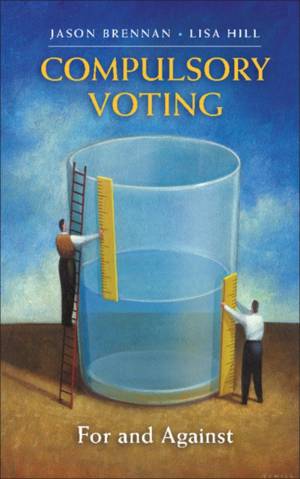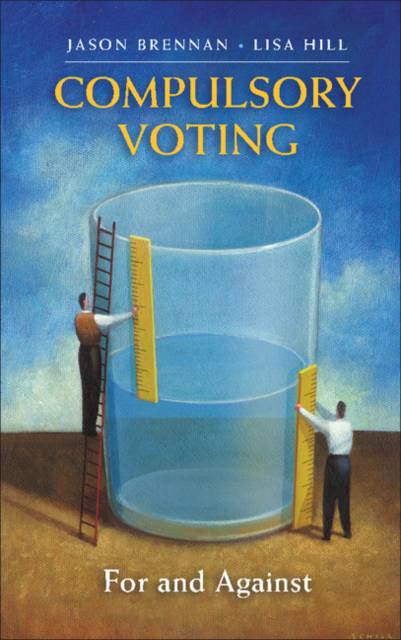
Je cadeautjes zeker op tijd in huis hebben voor de feestdagen? Kom langs in onze winkels en vind het perfecte geschenk!
- Afhalen na 1 uur in een winkel met voorraad
- Gratis thuislevering in België vanaf € 30
- Ruim aanbod met 7 miljoen producten
Je cadeautjes zeker op tijd in huis hebben voor de feestdagen? Kom langs in onze winkels en vind het perfecte geschenk!
- Afhalen na 1 uur in een winkel met voorraad
- Gratis thuislevering in België vanaf € 30
- Ruim aanbod met 7 miljoen producten
Zoeken
€ 53,45
+ 106 punten
Uitvoering
Omschrijving
In many democracies, voter turnout is low and getting lower. If the people choose not to govern themselves, should they be forced to do so? For Jason Brennan, compulsory voting is unjust and a petty violation of citizens' liberty. The median non-voter is less informed and rational, as well as more biased than the median voter. According to Lisa Hill, compulsory voting is a reasonable imposition on personal liberty. Hill points to the discernible benefits of compulsory voting and argues that high turnout elections are more democratically legitimate. The authors - both well-known for their work on voting and civic engagement - debate questions such as: -Do citizens have a duty to vote, and is it an enforceable duty? -Does compulsory voting violate citizens' liberty? If so, is this sufficient grounds to oppose it? Or is it a justifiable violation? Might it instead promote liberty on the whole? -Is low turnout a problem, or a blessing? -Does compulsory voting produce better government? Or, might it instead produce worse government? Might it, in fact, have little effect overall on the quality of government?
Specificaties
Betrokkenen
- Auteur(s):
- Uitgeverij:
Inhoud
- Aantal bladzijden:
- 240
- Taal:
- Engels
Eigenschappen
- Productcode (EAN):
- 9781107613928
- Verschijningsdatum:
- 12/06/2014
- Uitvoering:
- Paperback
- Formaat:
- Trade paperback (VS)
- Afmetingen:
- 152 mm x 229 mm
- Gewicht:
- 358 g

Alleen bij Standaard Boekhandel
+ 106 punten op je klantenkaart van Standaard Boekhandel
Beoordelingen
We publiceren alleen reviews die voldoen aan de voorwaarden voor reviews. Bekijk onze voorwaarden voor reviews.









